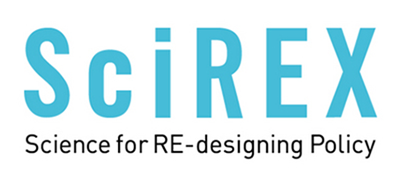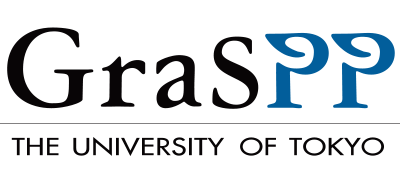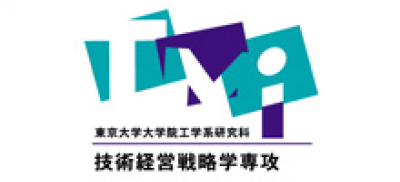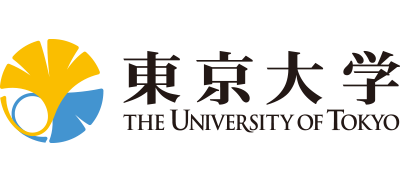- Hideaki Shiroyama“Takokukanshugi no resilience: Jusosei, senmonka chiho seifu network security-ka kokunai seido kozo [The resilience of multilateralism: Multilayered, expert and local government networks, securitized, and national institutional structure],” Han-globalism Saiko: Kokusai Keizai Chitsujo wo Yurugasu Kikiyoin no Kenkyu “Sekai Keizai Kenkyukai” Saishu Hokokusho [Reconsidering Anti-globalism: Study of Crisis Factors that Shake the International Economic Order “Study Group on the World Economy” Final Report], The Japan Institute of International Affairs, March 2020, pp. 221-242, not peer reviewed.
- Hideaki Shiroyama, “Shakaiteki ishi kettei ni okeru toyo no yakuwari [The role of voting in social decision-making],” Voters, No. 54, February 2020, p. 3, not peer reviewed.
- Hideaki Shiroyama, “Global risk governance to sono genkai [Global risk governance and its limitations],” Shiso [Thought], No. 1149, January 2020, pp. 142-165.
- AitongLi, YuanXu, Hideaki Shiroyama (2019), “Solar lobby and energy transition in Japan”, Energy Policy, Vol, 34, November 2019, p. 110950.
- Hideaki Shiroyama, “Hito to kikai no yakuwari buntan [Human-machine role division],” Public Administration Review Quarterly, No. 167, September 2019, pp. 1-4.
- Hideaki Shiroyama, “Gyosei ni okeru AI robot to no katsuyo no tenbo to kadai [Prospects and challenges for the use of AI and robots in administration],” Administration & Information Systems 580, Vol. 55, No. 4, August 2019, pp. 29-33.
- Hideaki Shiroyama, “SDGs mirai toshi no keifu to kongo no kadai [The genealogy of SDGs future cities and the challenges ahead],” Toshi Mondai [Municipal Problems], Vol. 110, No. 7, July 2019, pp. 51-61.
- Makiko Matsuoand Masashi Tachikawa, “Shoku no bunya ni okeru aratana biotechnology wo meguru governance jo no kadai: Genome henshu gijutsu wo chushin ni [Governance of New Biotechnology in Food and Agricultural Sector: Case of Genome Editing],” Japanese Journal of Risk Analysis, Vol. 29, No. 1, 2019, pp. 59-71.
- Makiko Matsuo, “Risk no sogoizon to fukugoka e no seisakuteki taio [Policy responses to the interdependence and increasing complexity of risks],” Risk-gaku Jiten [The Encyclopedia of Risk Research], Maruzen, 2019, Chapter 3, Para. 16, pp. 174-175.
- Jihyun Na, “Gyosei kaikaku to manual no seisei, sono taezaru akujunkan ni tsuite (Tokushu Compliance shakai) [Administrative reform and the creation of manuals, and their constant vicious cycle (Feature: Compliance Society)],” Gendai Shiso [La revue de la pensée d’aujourd’hui], Vol. 47, No. 13, October 2019, pp. 111-118.
- Jihyun Na, “Toitsu chiho senkyo kara ‘jichi’ wo kangaeru (Tokushu Chihosenkyo e no shikaku) [A review of autonomy in the context of Japan’s unified local elections (Feature: Perspectives on Local Elections)],” Toshi Mondai [Municipal Problems], Vol. 110, No. 7, July 2019, pp. 28-32.
- Masahiro Kakuwa, “HS-FCC gijutsu kaihatsu no rekishi [History of HS-FCC technology development],” Petrotech, March 2020.
- Quentin Verspieren and Hideaki Shiroyama. “From the Seas to Outer Space: the Reverse Dynamics of Civil-Military Situational Awareness Information and Responsibility Sharing,” Space Policy 50, November 2019.
doi:10.1016/j.spacepol.2019.07.003. - Yuri Takaya-Umehara, Quentin Verspieren and Goutham Karthikeyan. “The Principle of Non-Appropriation and the Exclusive Uses of LEO by Large Satellite Constellations,” Proceedings of the International Institute of Space Law 2018, November 2019.
- Quentin Verspieren, Yoshihide Aoyanagi, Takeshi Matsumoto, Takayoshi Fukuyo, Toshihiro Obata, Shinichi Nakasuka. “CubeSat-Based Low-Cost Communication Network and its Utilisation for Capacity Building in Developing Countries,” 70th International Astronautical Congress, Washington, DC, October 2019.
- Quentin Verspieren. “Military Influence on International Regime-Making for Space Traffic Management: Explaining the Evolution of SSA Data Transparency at the US Department of Defense,” 70th International Astronautical Congress, Washington, DC, October 2019.
- Quentin Verspieren, Takeshi Matsumoto, Yoshihide Aoyanagi, Takayoshi Fukuyo, Toshihiro Obata, Shinichi Nakasuka, George Kwizera and Joseph Abakunda. “Store and Forward 3U CubeSat Project TRICOM and Its Utilizations for Development and Education: the cases of TRICOM-1R and JPRWASAT,” 32nd International Symposium on Space Technology and Science, Fukui, Japan, June 2019.
- Hiroshi Ohashi, Electric Vehicle Charging Management Using Auction Mechanism for Reducing PV Curtailment in Distribution Systems, (with H. Kikusato, Y. Fujimoto, S. Hanada, D. Isogawa, S. Yoshizawa, Y. Hayashi), IEEE Transactions on Sustainable Energy, 2019.
- Hiroshi Ohashi, Price Effects of Target Ratcheting: A Progress Report on Medical Devices (with D. Isogawa), Japanese Economic Review, 70(3):331-340, 2019.
- Daiya Isogawa and Hiroshi Ohashi, “Price Effects of Target Ratcheting: A Progress Report on Medical Devices,” Japanese Economic Review, Vol. 70, No. 3, August 2019.
- Ahl, Amanda, Masaru Yarime, Kenji Tanaka, and Daishi Sagawa, "Review of Blockchain-Based Distributed Energy: Implications for Institutional Development," Renewable and Sustainable Energy Reviews, 107, 200-211, 2019.
- Kazuyuki Motohashi, Christian Rammer (2020.3) " Digitalization and New Product Development in Manufacturing SMEs: A Comparative Study of Germany and Japan;, RIETI Policy Discussion Paper 20-P-007.
- Kazuyuki Motohashi (2020.2)" Science and Technology Co-evolution in AI: Empirical Understanding through a Linked Dataset of Scientific Articles and Patents;, RIETI Discussion Paper 20-E010.
- Yongli Tang, Kazuyuki Motohashi, Xinyue Hu, Angeles Montoro-Sanchez, "University-industry interaction and product innovation performance of Guangdong manufacturing firms: the roles of regional proximity and research quality of universities", The Journal of Technology Transfer, 2019, 1-41.
- Dong Huo, Kazuyuki Motohashi, Han Gong " Team diversity as dissimilarity and variety in organizational innovation", Research Policy, 48(6), 1564-1572, 2019.
- Tohru Yoshioka-Kobayashi, “Nichibeiochukan no isho seido no sai ga isho toroku no doko ni ataeru eikyo no jissho bunseki [An empirical analysis of the impact of the differences in the design systems of Japan, the U.S., Europe, China, and Korea on the trend of design registration],” Design Protect, No. 122, 2019, pp. 9-14.
- Yoshioka-Kobayashi, T. (2019), "Institutional factors for academic entrepreneurship in publicly-owned universities: The case of a transition from a conservative anti-industry university collaboration culture to a leading entrepreneurial university," Science, Technology and Society, 24(2), 423-445.
- Shibayama, S. Sustainable development of science and scientists: Academic training in life science labs. Research Policy, 48(3): 676-692, 2019.
1 Research
1-2 Results related to science, technology and innovation governance achieved by STIG project members
AY2019
Papers (peer-reviewed papers, invited papers, university bulletins, etc.) and reports
Books (single-authored and co-authored)
- Arisa Ema and Hideaki Shiroyama, “AI no governance [Governance of AI],” in Shin-ichiro Inaba, Takehiro Oya, Satoshi Narihara, Masaki Fukuda, and Tomoaki Watanabe, eds., Jinko Chino to Ningen Shakai [Artificial Intelligence and Humans and Society], Keiso Shobo, February 2020, pp. 297-344, not peer reviewed.
- Jihyun Na, Bango wo Tsukuru Kenryoku: Nihon ni okeru Bango Seido no Seiritsu to Tenkai [The Power to Create Numbers: The Establishment and Implementation of a Number System in Japan], University of Tokyo Press, 2019.
Lectures and panelist appearances at academic conferences and other events
- Hideaki Shiroyama, “Energy Transition in Japan – Preference for PV and Recent Attempt for Balancing,” International Workshop on Climate Change and Sustainable Development: Public Health and Policy, The University of Tokyo Hongo Campus, Tokyo, Japan (February 17, 2020).
- Hideaki Shiroyama, “Mapping the Issues of Emerging Technologies and Governance of Them,” Governance of Emerging Technologies – Framing Benefits and Risks of Biotech and AI: Symposium in Tokyo 2020, The University of Tokyo Hongo Campus, Tokyo, Japan (February 2, 2020).
- Hideaki Shiroyama“Japan’s AI Governance and Its Challenges,” Fifth Exchange Study Session of The University of Tokyo Graduate Schools for Law and Politics and Peking University Law School, Shanghai University of Finance and Economics, Shanghai, People’s Republic of China (December 8, 2019).
- Hideaki Shiroyama, “Governance of Interconnected Risks – Comparative Cases,” The 2nd UTokyo-Copenhagen Conference on International Relations, The University of Tokyo Hongo Campus, Tokyo, Japan (October 25, 2019).
- Hideaki Shiroyama. “Resilience of Multi-layered Multilateralism,” The 2019 Annual Convention of the Japan Association of International Relations, Toki Messe, Niigata, Japan (October 20, 2019).
- Hideaki Shiroyama, “Framing the Impacts of the Use of Automated System concerning Public Service in Japan and Facilitating Policies to Realize Social Benefits,” IIAS Lien Conference, Nanyang Technological University, Singapore, June 20, 2019.
- Hideaki Shiroyama, “Multilayered Multilateral Governance of Emerging Risks – Global Health, Climate Change and Artificial Intelligence,” IIAS Lien Conference, Nanyang Technological University, Singapore (June 19, 2019).
- Hideaki Shiroyama, “Governance of AI in Society 5.0: Japan’s Domestic Challenges and International Strategy,” Symposium: Prospects for Japan’s G20 Osaka Summit, University of Toronto, Toronto, Canada (May 8, 2019).
- Makiko Matsuo, Invited Lecture, “Application of Genome Editing Technology to the Food and Agricultural Sectors and Its Introduction in Society: Current Status and Issues – For Technology Assessment,” National Diet Library, Tokyo, Japan, February 7, 2020.
- Makiko Matsuo and Masashi Tachikawa, “Governance Issues of Genome-Edited Products - Lessons learned from Japanese experience,” Workshop on Governance of Emerging Technologies- Framing Benefits and Risks of Biotech and AI, University of Tokyo, Tokyo, Japan, 2nd of Feb, 2020.
- Makiko Matsuo, “Overseas Handling of Genome-edited Crops and Foods,” Plant Genome Editing Technology Workshop hosted by the National Agriculture and Food Research Organization and co-organized by the 2nd SIP (Strategic Innovation Promotion Program) Topic “Core Technologies for Smart Bioindustry and Agriculture” Consortium for Public Understanding, AP Akihabara, January 25, 2020.
- Makiko Matsuo, Invited Speaker, “New Biotechnology and Governance Issues – Regulatory Clarification of Gene-Editing in Japan” presented at the “New breeding technologies: Prospects and regulatory hurdles Workshop,” the Plant and Animal Genome (PAG) XXVIII Conference, San Diego, USA, January 12, 2020.
- Makiko Matsuo, Invited Speaker, “Governance Issues of Genome Editing Technology for the Food and Agricultural Sectors,” Open Symposium V: The Impact of Genome Editing Technology on Society and Issues for the Food and Agricultural Sectors, 31st Annual Meeting of the Japan Association for Bioethics, Tohoku University Kawauchi Campus, Sendai, Japan, December 7, 2019.
- Makiko Matsuo, Invited Lecture, “Genome-Editing in Japan – State of Play and the Governance Issues” presented at the Symposium Gene Edited Crops – Global Perspectives and Regulation, organized by the Netherlands Commission on Genetic Modification (COGEM), the Assembly Hall of the Senate (Eerste Kamer), Hague, the Netherlands, October 10, 2019.
- Makiko Matsuo, Invited Lecture, “Recent Development in New Biotechnology in Japan” presented at JSPS 178th Committee on Plant Molecular Design / T-PIRC International Symposium “Towards sustainable food production: the progress of biotechnology and its regulation,” Akihabara Convention Hall, Tokyo, Japan, October 4, 2019.
- Makiko Matsuo, Invited Lecture, “Governance Challenges Posed by New Biotechnology – in Japanese Context” presented at Tsukuba Conference, International Symposium on “How can we think about securing foods in the world using biotechnology crops?” Tsukuba International Congress Center, Tsukuba, Japan, October 3, 2019.
- Makiko Matsuo, Invited Lecture, “Overseas Trends in the Handling of Genome-edited Crops and Foods,” Trends in Technological Development and Environmental Improvement relating to Genome Editing Technology and Food Products Using Genome Editing Technology hosted by the Japan Association for Techno-innovation in Agriculture, Forestry and Fisheries (JATAFF), A/B Conference Room, 5th floor, Kyodo Tsushin Kaikan, September 27, 2019.
- Makiko Matsuo, Invited Lecture, “ELSI and Governance of Genome Editing Applied to the Food and Agricultural Sectors,” Fifth Study Group on Reconstruction of the ELSI Concept, Room C, 12th floor, International Academic Research Building, The University of Tokyo, Tokyo, Japan, July 11, 2019.
- Jihyun Na, “Informatization and Number System,” Association of Law and Information Systems, December 2019.
- Jihyun Na, “Effects of RPA Introduction on Administration from Administrative Science,” “Virtual Government” Seminar, December 2019.
- Jihyun Na, “Japan’s Administrative Reform: The Number System,” The Japanese Society for Public Administration, May 2019.
- Taketoshi Taniguchi, “A Look at Dealing with the Risks of Mega Events,” The Society for Risk Analysis, Japan, Osaka University Nakanoshima Center, Osaka, Japan, March 28, 2020, online.
- Masahiro Kakuwa, “Employment in Japan for International Students,” Issue Discussion Session, Graduate School of Public Policy, The University of Tokyo, February 21, 2020.
- Masahiro Kakuwa, “Creative Leadership Skills and Creative Teamwork,” JICE, February 18, 2020.
- Masahiro Kakuwa, “What is the Mobility Society, the City Where Generation Z Wants to Live?” Annual Meeting of FCAJ/BAO, February 6, 2020.
- Koichi Kikuchi, “Governance of Outer Space and Cyberspace,” Space Law Mini Seminar hosted by Keio University, Tokyo, Japan, December 2019.
- Koichi Kikuchi, “Governance of Outer Space and Cyberspace,” Space Law Mini Seminar hosted by Keio University, Tokyo, Japan, December 2019.
- Koichi Kikuchi, “Establishing New International Space Governance: From Space Debris Reduction to Sustainable Space Development,” Proceedings of 63rd Space Sciences and Technology Conference, Tokushima, Japan, November 2019.
- Koichi Kikuchi, “History and Prospects of Space Law Policy – Looking Back to the 1980s,” Proceedings of 63rd Space Sciences and Technology Conference, Tokushima, Japan, November 2019.
- K. Kikuchi, “Finance Function of Space Agencies”, International Astronautical Congress, October 2019.
- Quentin Verspieren.“Empirical study contributing to the development of a domestic scheme for university-driven space technology development and utilisation capacity building with emerging space countries,” The University of Tokyo’s Space Policy and Law Workshop: Challenges to Academic Space Programs: The Function of Capacity-building in Promoting International Space Cooperation, 26th Asia-Pacific Regional Space Agency Workshop, November 2019.
- Quentin Verspieren, Yoshihide Aoyanagi, Takeshi Matsumoto, Takayoshi Fukuyo, Toshihiro Obata, Shinichi Nakasuka. “CubeSat-Based Low-Cost Communication Network and its Utilisation for Capacity Building in Developing Countries,” 70th International Astronautical Congress, Washington, DC, October 2019.
- Quentin Verspieren. “Military Influence on International Regime-Making for Space Traffic Management: Explaining the Evolution of SSA Data Transparency at the US Department of Defense,” 70th International Astronautical Congress, Washington, DC, October 2019.
- Quentin Verspieren, “Current Status of ASEAN Space Programs”, GNF Session: Governance of Space Activities: Comparative Studies on National Space Policy and Law, 70th International Astronautical Congress, Washington, DC, October 2019.
- Quentin Verspieren, Takeshi Matsumoto, Yoshihide Aoyanagi, Takayoshi Fukuyo, Toshihiro Obata, Shinichi Nakasuka, George Kwizera and Joseph Abakunda. “Store and Forward 3U CubeSat Project TRICOM and Its Utilizations for Development and Education: the cases of TRICOM-1R and JPRWASAT,” 32nd International Symposium on Space Technology and Science, Fukui, Japan, June 2019.
- Daiya Isogawa, “The Effects of R&D Subsidies on Private R&D Expenditures in Oligopolistic Markets: Empirical Evidence from Japan,” EARIE 2019, Universitat Pompeu Fabra, Barcelona, Spain, September 2019.
- Yarime, Masaru, "Governing Data-Driven Innovation for Smart Cities: The Experiences in Japan and Overseas and Implications for Corporate Strategy and Public Policy," JSCA Seminar, Japan Smart Community Alliance (JSCA), New Energy and Industrial Technology Development Organization (NEDO), Kawasaki, Kanagawa, Japan, February 5 (2020).
- Yarime, Masaru, "Governing Data-Driven Innovation for Sustainability: Opportunities and Challenges in Smart Cities," IELP/GP-RSS Seminar, International Environmental Leadership Program (IELP) and the International Joint Graduate Program in Resilience and Safety Studies (GP-RSS), Tohoku University, Sendai, Miyagi, Japan, February 4 (2020).
- Yarime, Masaru, "Data Governance for Smart Cities: Opportunities and Challenges in Public Policy," Research Seminar, College of Public Administration, Huazhong University of Science and Technology, Wuhan, China, December 17 (2019).
- Yarime, Masaru, "Emerging Impacts of Digital Transformation on Smart City Development: Implications for Global Sustainability," The 9th International Symposia on Green Smart Development & Vision (GSDV) 2019, co-organized by Seoul National University, Korea Advanced Institute of Science and Technology (KAIST), and Pusan National University, Busan, South Korea, November 26 (2019).
- Yarime, Masaru, "Facilitating Data-Driven Innovation for SDGs: Opportunities and Challenges in Blockchain," Roundtable on Blockchain and Refugee Protection, JAHSS-JASID Joint International Conference - Refugees/Migrants and Education/Employment: Seeking to Ensure Human Security, co-organized by the Japan Association for Human Security Studies (JAHSS) and the Japan Society for International Development (JASID), The University of Tokyo, Japan, November 16-17 (2019).
- Yarime, Masaru, "AI-Based Innovation to Tackle Climate Change: Technological Opportunities and Institutional Challenges in Smart Cities," Japanese-German-French Conference on AI for SDGs - How Can AI Help Solve Environmental Challenges?, jointly organized by the German Centre for Research and Innovation (DWIH) Tokyo, French Embassy to Japan, and the Japan Science and Technology Agency (JST), German Cultural Centre, Tokyo, Japan, October 24 (2019).
- Yarime, Masaruu, "Facilitating Data-Driven Innovation for Sustainability: Opportunities and Challenges in Distributed Energy Systems," Workshop on the Kyoto-Shenzhen Decarbonization Project, Seventh Shenzhen International Low Carbon City Forum, China Capital Market Institute, Shenzhen, Guangdong, China, August 29 (2019).
- Yarime, Masaru, "Data-Driven Innovation in the Greater Bay Area of China: Opportunities and Challenges in Medical and Health Fields" Public Seminar on Innovation for Medical Applications of Artificial Intelligence in China, Institute of Medical Science, University of Tokyo, Tokyo, Japan, July 19 (2019).
- Yarime, Masaru, "The SDGs and Network Governance: Opportunities and Challenges in Data-Driven Innovation," Keynote Speech, HSP Symposium on the SDGs and Network Governance: Opportunities and Challenges in Data-Driven Innovation, Graduate Program on Human Security (HSP), Graduate School of Arts and Sciences, University of Tokyo, Tokyo, Japan, July 13 (2019).
- Yarime, Masaru, "Facilitating Open Global Innovation: Possibilities and Challenges in the Greater Bay Area as a Global Innovation Hub," International Forum for Open Global Economy, organized by the Chinese Academy of Social Sciences, China Daily, Asian Development Bank Institute, and Japan-China Science, Technology and Culture Centre, Osaka, Japan, June 25 (2019).
- Yarime, Masaru, "Innovation Systems of Smart Cities in Japan, United States and China: Implications for Policy and Institutional Design," CSTI Policy Seminar on Innovation Systems of Smart Cities: International Practices and Policy Implications, Centre for Science, Technology & Innovation Policy (CSTI), Institute for Manufacturing (IfM), University of Cambridge, Cambridge, United Kingdom, June 13 (2019).
- Yarime, Masaru, "Fostering Data-Driven Innovation for Sustainability Transitions: Local Initiatives and Global Implications," Keynote Speech, International Workshop on Rethinking Clusters: The Local and Global Scale of Sustainability Transitions, University of Padua, Padua, Italy, May 15-17 (2019).
- Yarime, Masaru, "Emerging Trends of Innovation on E-mobility in China and Implications for Corporate Strategy and Public Policy," Panel on Our Electric Mobility Future, Connecting Startup Cities Conference, Asia-Pacific Week Berlin 2019, Spreewerkstätten, Berlin, Germany, May 14 (2019).
- Yarime, Masaru, "Understanding the Japanese Innovation System of Smart Cities: Knowledge, Actors, and Institutions," International Conference on Innovation in East Asia in Global Context: E-Mobility and Urban Systems, jointly organized by IN-EAST School of Advanced Studies on Innovation in East Asia, Institute of East Asian Studies, University of Duisburg-Essen and Japanese-German Center Berlin (JDZB), Berlin, Germany, May 9-10 (2019).
- Tohru Yoshioka-Kobayashi, Kazuma Edamura, Yoko Furusawa, Makiko Takahashi, and Koichi Sumikura, “An Empirical Analysis of the Impact of the Assignment of University Research Administrators,” 34th Annual Academic Conference of the Japan Society for Research Policy and Innovation Management, National Graduate Institute for Policy Studies, Tokyo, Japan, October 27, 2019.
- Yoshioka-Kobayashi, T., Takahashi, M. (2019). Examining public perception of the university-industry collaboration research by a split-run test: Pitfalls in academic technology transfer policy. Technology Transfer Society, The 2019 Technology Transfer Society Annual Conference, September, 26-28, 2019, Munk School of Global Affairs & Public Policy, University of Toronto, Toronto, Ontario: Canada.
- Yoshioka-Kobayashi, T. (2019). “Typologies of research administration professionals: Insights from management studies.” The Research Manager and Administrator Network Japan, 5th RMAN-J Annual Conference, September, 3, 2019 (The University of Electro-Communications, Tokyo, Japan).
Awards
- Jihyun Na, KDDI Foundation Encouragement Award, KDDI Foundation, March 2020
- Jihyun Na, 45th Fujita Encouragement Award, The Tokyo Institute for Municipal Research, September 2019



